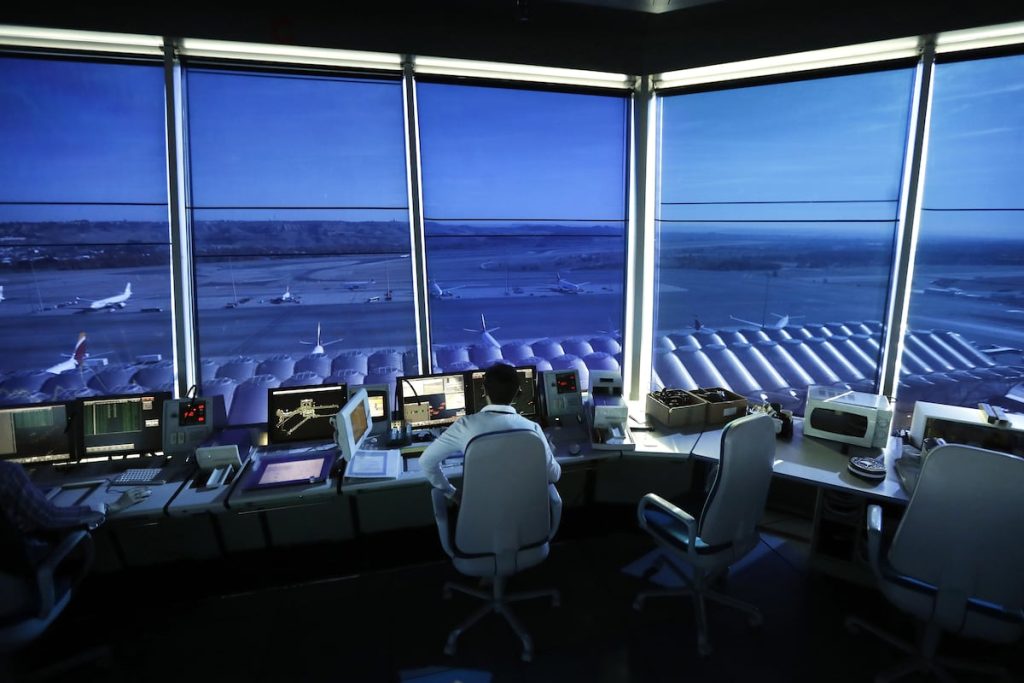Air traffic controllers are once again at odds with the government. This time, there is no massive strike on the horizon like in 2010, but there is a unanimous demand to align with the rest of European countries and be able to retire at 55. The main reason they cite is that after that age, fatigue increases and the ability to handle critical stressful situations involving quick and crucial decisions with the lives of hundreds of people at stake diminishes, which jeopardizes air safety. Several international studies on reflexes and the necessary calmness to avoid fatal accidents in the sky and on the ground support their claim, but the government is not budging. The Declaration of Seville platform, supported by three unions and two professional associations, signed by a quarter of the 2,118 air traffic controllers in Spain, highlights the EU’s implementation of the FSRMS safety system after confirming that human errors, motivated by fatigue and stress, have actively contributed to aircraft accidents and incidents.
Incidents due to fatigue or stress are on the rise, with controllers reporting 420 alerts in 2022, more than one per day, related to air traffic contingencies, increased due to the strong recovery of tourism post-pandemic. Spanish airports broke records in 2023 with 283 million passengers, a 16% increase from the previous year. Despite this surge in flights, with 1.4 million just between January and July, the number of controllers remains stagnant, prompting unity among the collective. The government denies any safety risks, asserting that there is no correlation between the age of controllers and potential incidents. However, the controllers argue that the current situation endangers air safety and urge for pre-retirement at 55 to prevent air accidents.
The conflict between controllers and the government has escalated, with reports of near misses due to fatigue and stress among controllers. The call for early retirement at 55 is based on safety concerns and supported by findings from international studies. The controllers have reached out to the government through various means, including a letter to the Secretary of State for Transport and Sustainable Mobility, urging the establishment of a working group to align their retirement age with the rest of Europe. The discord stems from the discrepancy between Spain and other European countries in terms of retirement age for air traffic controllers, with Spain lagging behind in recognizing the need for early retirement to ensure air safety.
The legal battle and negotiations between the government and air traffic controllers have been ongoing for years, with no clear resolution in sight. The controllers highlight the importance of early retirement to maintain air safety and argue that the current system violates European directives on occupational risk prevention. The push for early retirement at 55 is considered crucial for the safety of air travel, as controllers face challenges such as technofatigue, chronic stress, and sleep problems due to their shifts. The debate revolves around the balance between safety concerns and economic considerations, with the government reluctant to yield to the demands of the controllers.
Although the government maintains that there are no safety risks associated with the current age of controllers, the controllers, supported by their unions, continue to press for early retirement at 55. The issue has been ongoing for over a decade, with support from the majority union USCA adding weight to the demands. The impending shortage of controllers due to increasing air traffic poses a significant challenge, with calls for alignment with European standards and practices. The complex interplay between safety, labor rights, and economic factors continues to fuel the dispute, with no clear resolution in sight. The future of air traffic control in Spain hinges on finding a compromise that balances the interests of all stakeholders involved.


